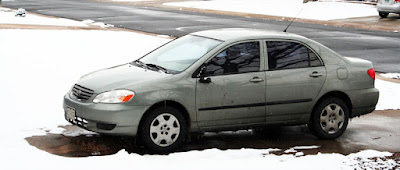A few days ago I was on the phone with a friend of mine. We were discussing art and films, and he asked me why it was that so many students had trouble with making something that made sense and had a point. There are probably many reasons for this, but I have three for now.
1. Students are often rightly encouraged to learn the technical side of their trade (be it painting, filming, sculpting, writing, or otherwise). There is a certain amount of raw skill and knowledge that must be gathered before one can do something. Since students must learn these things, it is little wonder that student films (and art projects, writing assignments, and such) tend to lack much communicative power and story/meaning. They are still just trying to figure out how to use their medium.
2. Story/meaning can't be taught. For all the books out there on screenwriting, it's still just mechanics. It's not creativity. It's not story. As one of my English teachers once rhetorically asked: Who taught Shakespeare how to write? While the ability to tell stories can be shaped, improved, and grown, it can not be merely imparted to another.
3. It's hard to tell a good story/make something with meaning. For all the professionals out there, and the billions of dollars spent on books, art, game design, movies, and television, there is precious little that is any good. It is little wonder, then, why so few students produce anything really great.
This leads to two observations:
1. You will likely create pieces that people don't understand, or that lack any significance. That's okay. However...
2. Work at story. It's more important than looking good. Sure, you may win awards if you make something pretty, but if it lacks meaning, you really haven't accomplished much more than an exercise. "
The New World" is a prime example of that: Pretty pictures, but a story barely held together by the viewer's knowledge of history and horrible voice overs. Even here, however, the other truth about media holds true: There's an audience for anything.
~Luke Holzmann
Your Media Production Mentor



